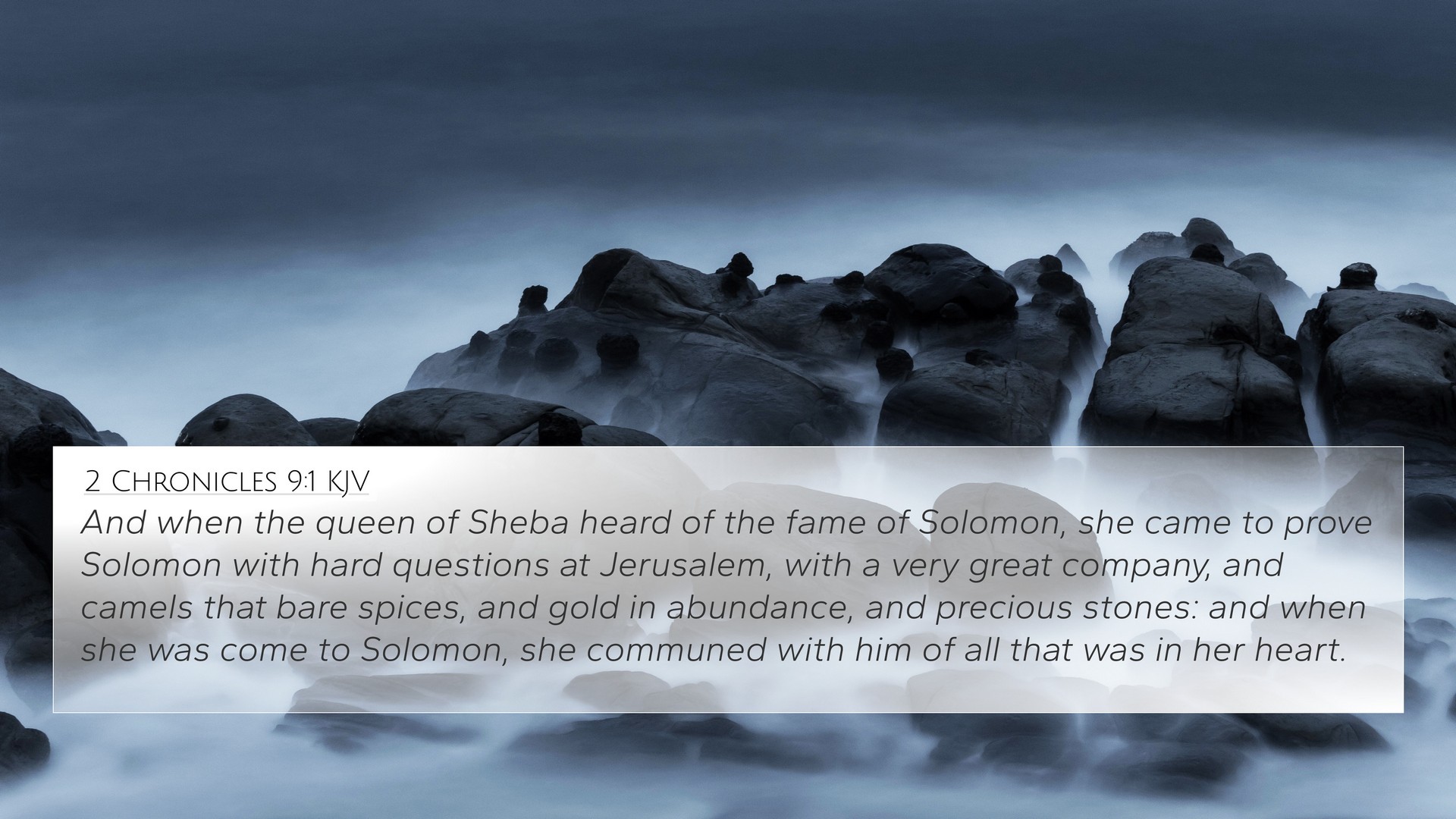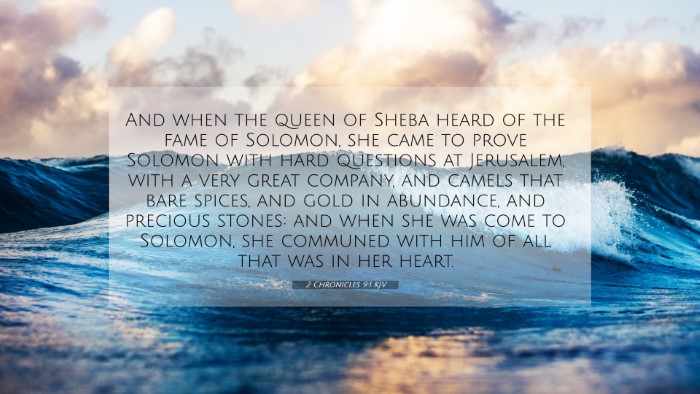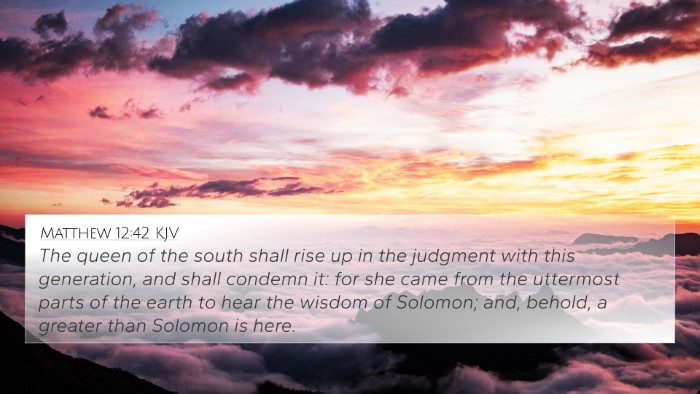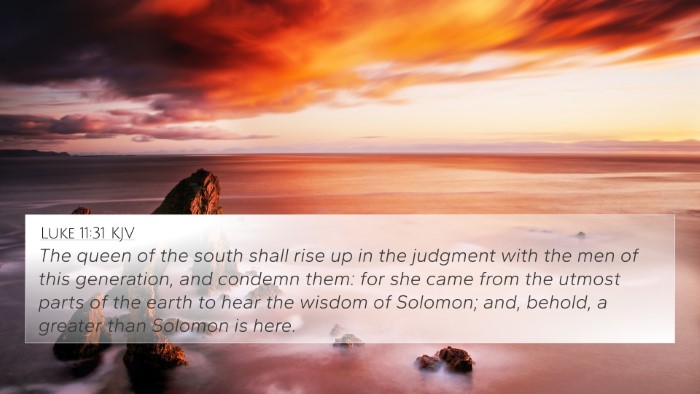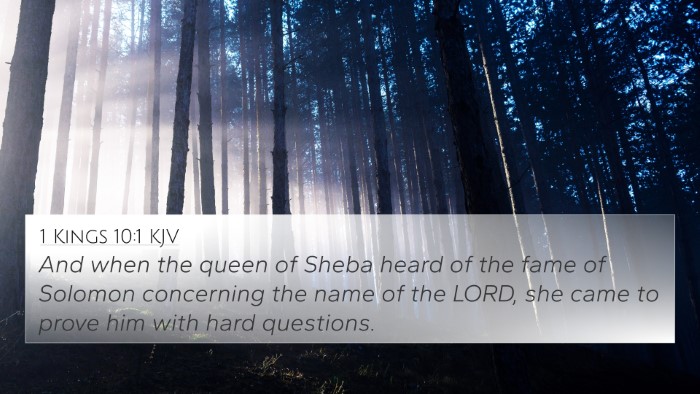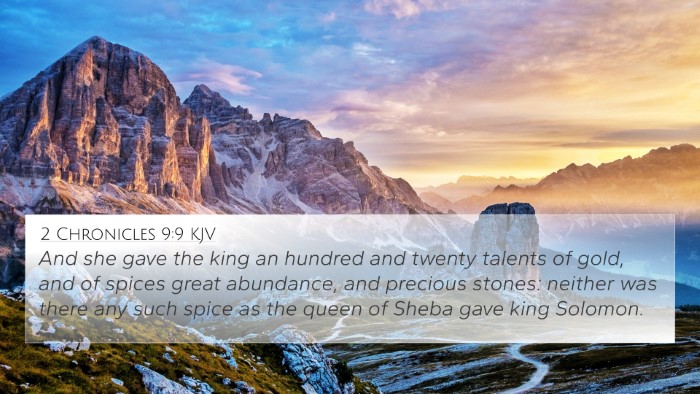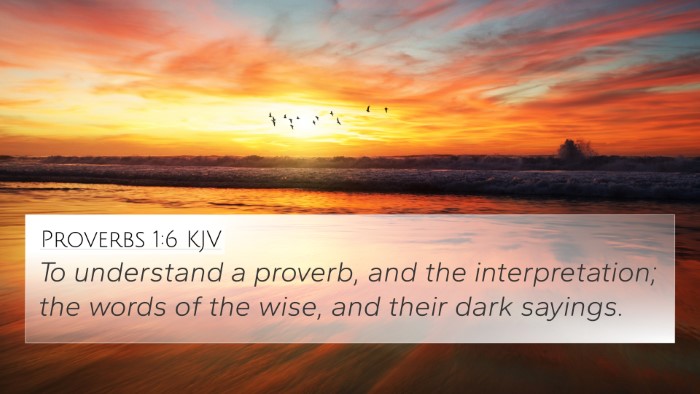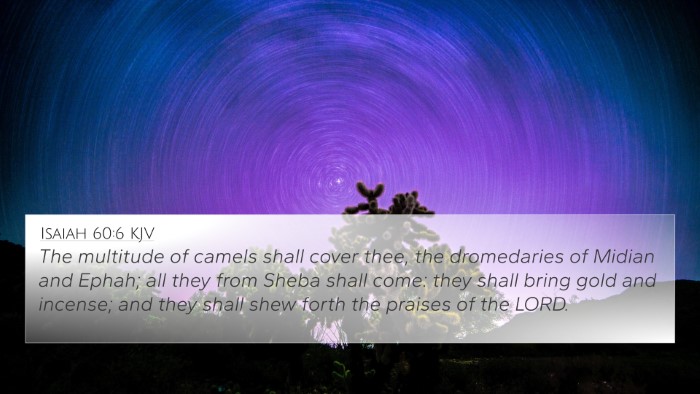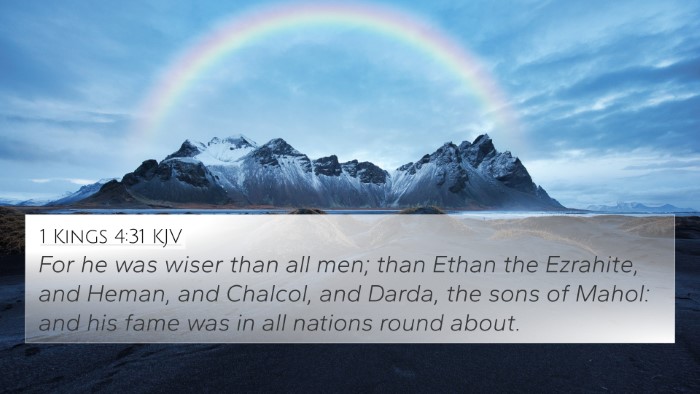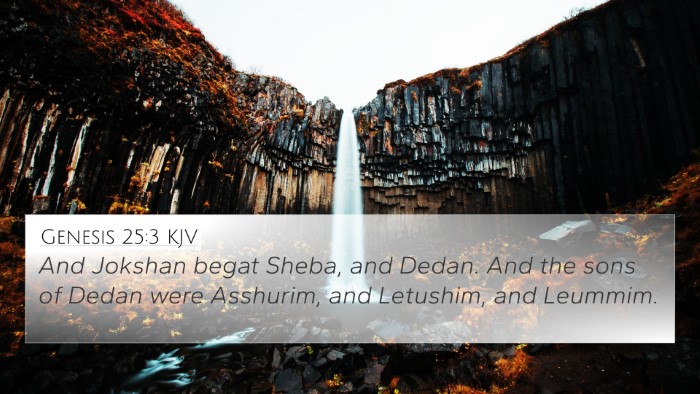Understanding 2 Chronicles 9:1
Verse: 2 Chronicles 9:1 (NIV) - "When the queen of Sheba heard of Solomon’s fame, she came to Jerusalem to test him with hard questions. Arriving with a very great caravan—with camels carrying spices, large quantities of gold, and precious stones—she came to Solomon and talked with him about all that she had on her mind."
Summary of Insights
This verse details the visit of the Queen of Sheba to King Solomon, prompted by his renowned wisdom and wealth. It reflects significant themes such as the pursuit of knowledge, the recognition of God's gifts in others, and the international reputation of Solomon's reign.
Key Themes and Interpretations
- Desire for Wisdom: The queen's journey symbolizes the thirst for understanding and the value placed on wisdom, represented in Solomon.
- God's Blessings: Solomon's fame is attributed not just to his personal prowess but as a part of God's blessings upon him for his prior request for wisdom.
- International Recognition: The visit from the Queen of Sheba signifies the broader impact of Solomon's reign beyond Israel's borders, drawing attention from far-off lands.
- Testing and Inquiry: The queen's intention to test Solomon aligns with the biblical principle of seeking the truth and the wisdom of God.
- Wealth and Prosperity: The extravagant gifts reflect the prosperity of Solomon's kingdom and the status it held in the ancient world.
Bible Cross-References
This verse is interconnected with several other scripture passages that shed light on its significance:
- 1 Kings 10:1-2: Details the same account, emphasizing the same motivations and gifts.
- Psalm 72:10-11: Suggests that kings from distant lands would come and pay homage to Solomon, highlighting his royal stature.
- Matthew 12:42: Jesus references the Queen of Sheba as a witness against those who reject wisdom.
- Isaiah 60:6: Speaks of nations and kings coming to Israel bearing gifts, paralleling the actions of the Queen of Sheba.
- James 1:5: Encourages those in need of wisdom to ask God, reflecting the essence of why the Queen came to Solomon.
- 1 Kings 3:5-14: Presents God's granting of wisdom to Solomon, providing context to why he possessed great understanding.
- 2 Chronicles 1:7-12: Again, recounts Solomon’s divine request for wisdom, tying back to his renown.
Connections between Bible Verses
Throughout the Bible, numerous instances highlight the pursuit of wisdom and understanding, establishing strong connections between biblical texts. Here are some notable connections:
- Proverbs 2:6: Affirms that the Lord gives wisdom, emphasizing the divine source of Solomon’s understanding.
- 1 Corinthians 1:24: Describes Christ as the wisdom of God, linking Old Testament wisdom to New Testament revelations.
- Job 28:12-28: Discusses the value and pursuit of wisdom, underscoring its rarity and divine origin.
Comparative Bible Verse Analysis
When comparing these verses, we see the overarching theme of wisdom as a divine gift and its importance in leadership and relationships. The Queen of Sheba's actions exemplify how wisdom is sought after, not only for personal gain but for broader purposes, including governance and understanding the world.
Conclusion
2 Chronicles 9:1 encapsulates a pivotal moment in biblical history where the attributes of wisdom, wealth, and the recognition of God’s workings come together. This narrative not only highlights the character of Solomon but also serves as a reminder of the eternal pursuit of understanding and the acknowledgment of God’s sovereignty in bestowing wisdom generously.
Tools and Resources for Bible Cross-Referencing
For those wishing to engage in more detailed studies of interconnected Bible verses, several tools are available:
- Bible concordance for locating specific references quickly.
- Bible cross-reference guides to illustrate connections.
- Cross-reference Bible study materials for deep dives into themes and concepts.
Inter-Biblical Dialogue
The account of the Queen of Sheba invites readers to reflect on the interplay between the Old and New Testaments, enhancing understanding through themes of wisdom and the recognition of God’s authority. This narrative encourages this inter-biblical dialogue, which informs both scholarly pursuits and personal faith journeys.
